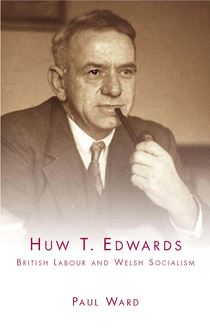Huw T. Edwards , livre ebook
195
pages
English
Ebooks
2011
Obtenez un accès à la bibliothèque pour le consulter en ligne En savoir plus
Découvre YouScribe et accède à tout notre catalogue !
Découvre YouScribe et accède à tout notre catalogue !
195
pages
English
Ebooks
2011
Obtenez un accès à la bibliothèque pour le consulter en ligne En savoir plus
Publié par
Date de parution
15 février 2011
EAN13
9780708323298
Langue
English
Poids de l'ouvrage
17 Mo
Publié par
Date de parution
15 février 2011
EAN13
9780708323298
Langue
English
Poids de l'ouvrage
17 Mo

